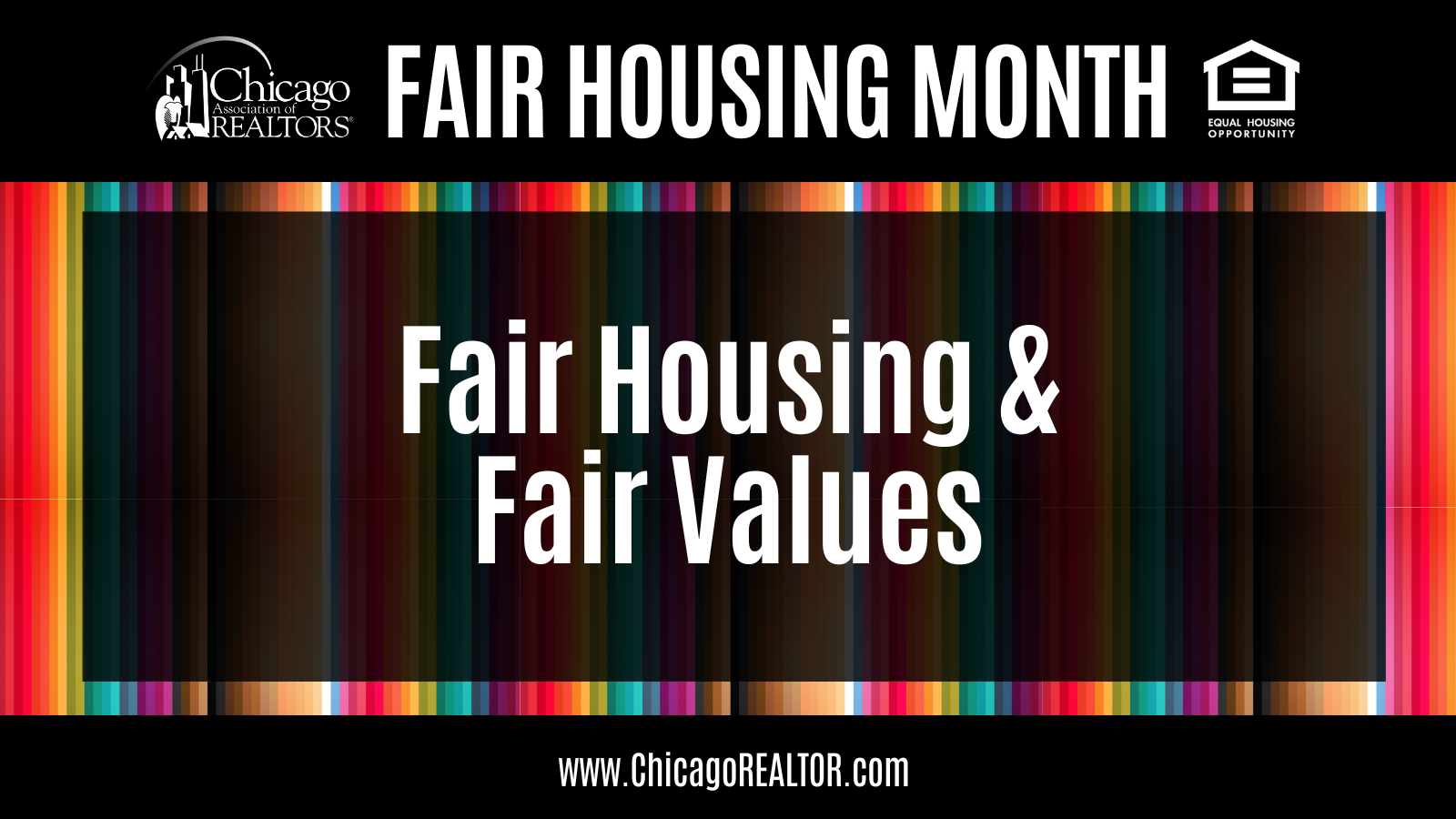On Thursday, April 7, we honored Fair Housing Month by hosting the Fair Housing & Fair Values virtual event. We were joined by two fair housing experts, Dr. Junia Howell, a sociology professor at the University of Illinois Chicago, and Melody Taylor, the executive director of the Interagency PAVE Task Force, who shared their insights on fair housing and appraisal discrimination. Here’s what they had to share:
The PAVE Action Plan: How the Government is Addressing the Issue of Appraisals
Melody Taylor kicked off the event by discussing the new PAVE Action Plan, which features a wide range of equity reforms to address racial biases in home appraisals.
To put the importance of home appraisals into context, Melody shared some insightful statistics. First, she explained that the median white family holds eight times the wealth of a Black family and five times the wealth of a Latino family. And, in neighborhoods that are majority black, 12.5% of appraisals result in a value below contract price. In majority-Latino neighborhoods, 15.4% of appraisals result in a value below contract price.
After analyzing a variety of data, the PAVE Task Force created an action plan to approach the issue of appraisal bias head-on. Here’s what it includes:
- Enhancing oversight and accountability by committing federal agencies to create a legislative proposal to modernize the structure of the appraisal industry.
- Empowering consumers by educating them on the appraisal process and issuing guidance to improve the process.
- Preventing algorithmic bias by ensuring automated valuation processes.
- Coordinating enforcement to keep the industry accountable for discrimination.
Melody ended her presentation by stating this is the first step to making a difference, but it will take the will and commitment of our industry to make a lasting change.
Analyzing Appraisals Based On Data
Dr. Junia Howell conducts research about what causes racial disparities in housing. She began looking at how appraisals play a part in this.
When speaking with appraisers, she realized that they were specifically racializing appraisals during the process. This led to her looking into how much these appraisal issues play into housing inequalities.
When looking at appraisals today, she determined several revelations. Firstly, appraisal values are growing, and secondly, present-day white homes are appraised for almost two times as much as homes appraised in communities of color. In fact, in 107 metropolitan areas, Dr. Howell determined race matters more now in appraisals than it did in the 1980s. Data also demonstrated that white homes are appreciating significantly more than in neighborhoods of color.
With all of this in mind, how can we make a difference? Dr. Howell has some ideas:
- Appraisal methods need to be adjusted. There are too many inconsistencies that breed these inequalities.
- We need to define locations and processes to deal with the historical component and address the contemporary remnants of how race is playing into appraisals.
- Standardized methods need to be put into place when selecting comps.







